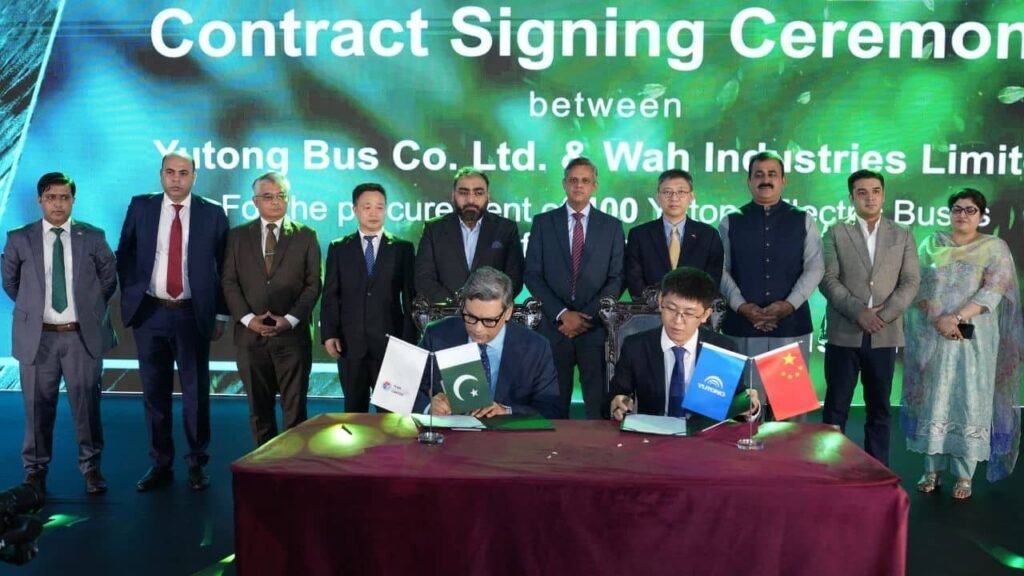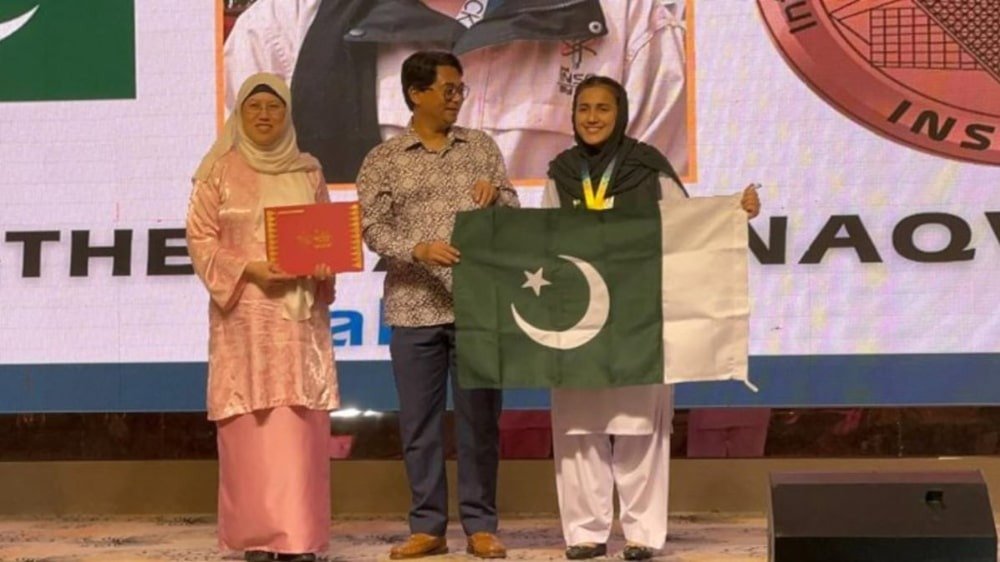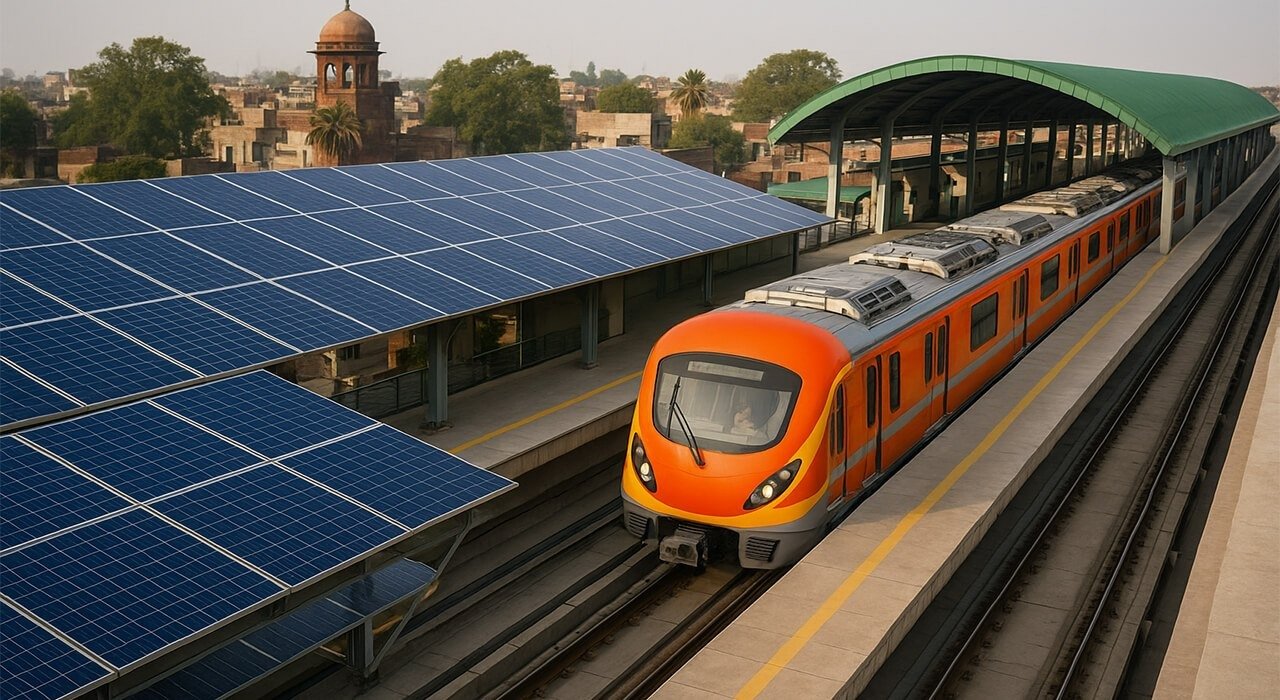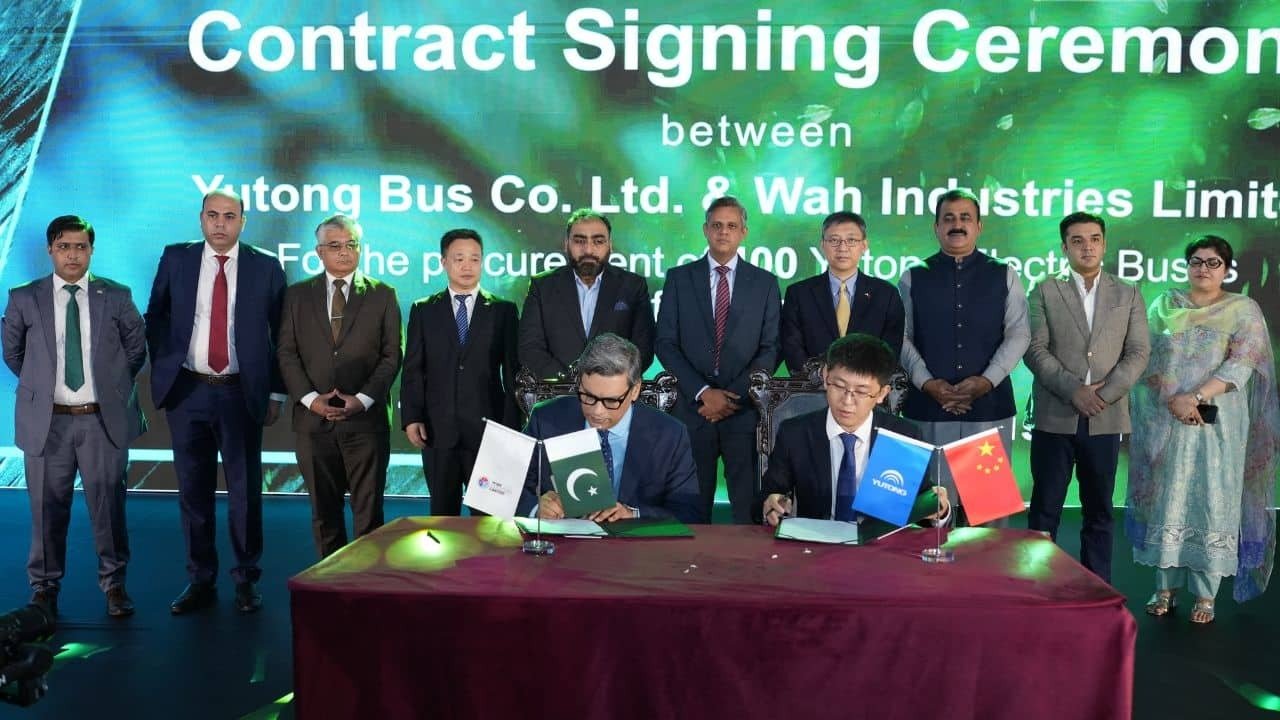Pakistan now embraces electric bus revolution in a record electric bus order that will reshape public transportation across the country. With Yutong and Wah Industries Limited joining forces under a bold historic agreement, Pakistan steps into a new era of sustainable mobility. Leading the event, Punjab Transport Minister Bilal Akbar Khan affirmed the government commitment to electrification, backing the transition to electric buses with strong policy support. This landmark Yutong deal signals Pakistan’s push toward new energy vehicles and a greener transport future. It brings purpose‑built technology to cities, tackling smog, cutting emissions, and ushering in revolutionized public transportation nationwide. For more latest news checkout, Pakistan coverage.
Launch Event
Pakistan embraces electric bus revolution with Yutong deal began in Pakistan with a vibrant launch event in Lahore. Yutong unveiled its DMT (Direct Motor Drive) and YEA Electric Architecture technologies before signing a record electric bus order. The launch saw Punjab Transport Minister Bilal Akbar Khan pledge full government commitment to electrification. Pakistan’s public transport sector felt the energy as dignitaries from Wah Industries Limited, Chinese consulate and transport experts attended the occasion. This historic agreement marked a pivotal stride toward electrifying public transport in Pakistan.
Pakistan’s public transport sector watched as the historic agreement emerged during the event. Wah Industries Limited joined Yutong in sealing the largest largest single order of new energy vehicles ever in the country. The ceremony included a symbolic “Green Commitment Tree” that reflected national resolve toward sustainable mobility. The transition to electric buses signaled new hope for cleaner roads, reduced emissions, and a modern sustainable transport in Pakistan.
Historic Order
The historic agreement featured a record electric bus order—400 units from Yutong via Wah Industries Limited. This clear milestone is Pakistan’s largest single order of new energy vehicles and underlines the shift towards sustainable transport in Pakistan. The scale of this deal ensures a major boost to climate change policies and marks Pakistan’s serious entry into new energy vehicles adoption.
This transition to electric buses positions Pakistan among nations prioritizing green public transport infrastructure. With Yutong models coming from tailored designs and WIL partnership, the project will redefine how public transportation operates in Lahore and beyond. It also promises more than financial savings—an environmental legacy.
Yutong Tech
Yutong displayed four purpose-built electric and hybrid bus models designed for Pakistan’s challenging climate and urban conditions. The DMT (Direct Motor Drive) hybrid system removes the gearbox for better durability, while the YEA Electric Architecture ensures IP68 and IP6K9K protection for harsh weather. These innovations deliver strong reliability and real-world energy savings between 30–50%.
Both DMT and YEA align with sustainable mobility goals by enhancing efficiency and enabling smarter maintenance via Yutong’s EnRoute+ service. The E9 and E12 PRO models integrate liquid‑cooled batteries and air curtains to deal with Lahore’s heat and monsoon rains. These features make them ideal for Pakistan’s urban transport shift. To get all the latest news, click here.
Lahore Pilot
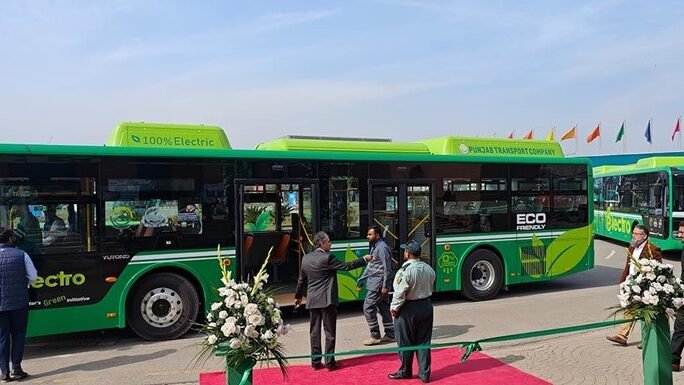
The transition to electric buses began with a pilot fleet of 27 E12 PRO buses on Lahore’s city streets. This pilot connects Green Town to Railway Station on a 21 km route that serves 17,000 commuters daily. Each bus hosts Wi‑Fi, CCTV, USB ports, women’s section, and ramps for accessibility, showcasing inclusive public transportation.
The pilot spans the core of Lahore and aims to show how new energy vehicles can reduce pollution, cut costs, and improve rider comfort. This experiment lays the groundwork for expansion across Punjab’s cities, boosting sustainable transport in Pakistan.
Route Map
The route map shows the Lahore pilot corridors where the E12 PRO buses run. It highlights charging stations, passenger hubs, accessibility ramps, and key stops like Green Town and Railway Station. This map helps riders and planners visualize how Pakistan’s electrifying public transport network will unfold.
Expansion Plans
Following the Lahore pilot success, officials plan rapid expansion throughout Punjab and beyond. Up to 500 additional buses are slated for deployment by August. Long‑term expansion includes up to 620 buses across multiple urban centres with charging infrastructure built province‑wide.
The Punjab plan also includes launching an electric taxi service with 1,100 vehicles offered via interest‑free loans and easy installments. These moves illustrate strong government commitment to electrification and push to shift Pakistan’s public transport sector toward green mobility.
Impact Table
| Metric | Diesel Buses | Yutong Electric Buses |
| Fuel / Energy Cost | High and volatile | Lower and stable |
| Emissions | High CO₂ and particulates | Zero tailpipe emissions |
| Maintenance | Frequent gearbox issues | Minimal drivetrain maintenance |
| Passenger Experience | Noise and heat issues | Smooth, cooled, quiet ride |
Policy Boost
Pakistan’s climate change policies gained a boost with its Electric Vehicle Policy 2020–2025 that cuts customs duties and incentivizes public adoption. The policy waives taxes on chargers, kits, and complete vehicles. This favourable legal foundation supports the transition to electric buses as part of a nascent green economy.
Punjab Transport Minister Bilal Akbar Khan emphasized that public interest shapes the EV policy. He pointed out that these measures enable accessible public transportation reforms and help Pakistan advance sustainable mobility goals while battling smog and fossil fuel dependence. To Get all the news and updates from Pakistan, click here.
Public Feedback
Commuters aboard the pilot electric buses in Lahore report noticeably quieter rides, stronger air conditioning, and smoother acceleration. Many describe the experience as cleaner and more pleasant than older buses. Users appreciate onboard USB ports, free Wi‑Fi, and safety features. Early feedback shows growing demand for sustainable transport in Pakistan.
Environmental advocates note this Yutong deal as a bold step toward reducing Lahore’s notorious smog and improving air quality. They encourage continued expansion, improved road conditions, and local EV assembly to fully harness the potential of electrifying public transport in Pakistan.
Frequently Asked Questions (FAQs)
Are Yutong buses electric?
Yes, Yutong buses such as the E10, E12, U11DD, and IC12E are battery electric buses using lithium-iron phosphate batteries for zero‑emission urban and intercity transport.
Which country has the most electric buses?
China leads the world with over 670,000 electric buses—more than half of all global electric bus inventory by early 2023.
How long does it take to charge a Yutong electric bus?
Most Yutong electric buses support DC fast charging or pantograph systems enabling a full charge in about one hour or less.
Who is the owner of Yutong company?
Yutong Bus Co., Ltd. is a publicly traded Chinese company, not state‑owned, headquartered in Zhengzhou, China.
Where is the battery on a Yutong bus?
Yutong’s lithium‑iron phosphate batteries are integrated within the YEA Electric Architecture, mounted low beneath the floor or roof for stability and easy access.


